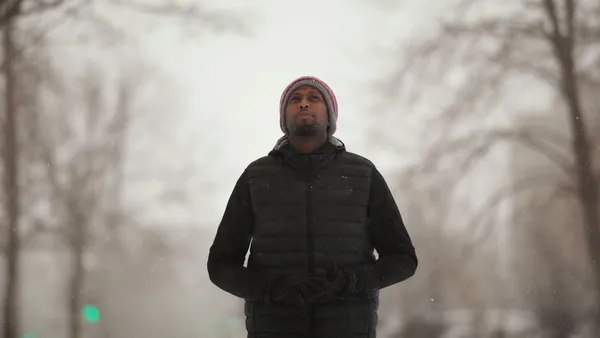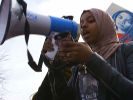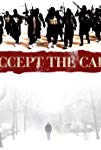Eye For Film >> Movies >> Accept The Call (2018) Film Review
Accept The Call
Reviewed by: Amber Wilkinson

The notion of Islamist radicalisation of the young has been at the forefront of filmmakers' minds around the globe recently, with fiction features from Tunisia (Dear Son, Fatwa), France (Farewell To The Night), Egypt (The Guest) and Algeria (Investigating Paradise) just some of those to tackle it. Meanwhile, documentarians went through a spate of following those who went to fight in foreign wars in the likes of First To Fall and Point And Shoot.
Now, journalist-turned-documentarian Eunice Lau considers the impact that a son's decision to attempt to go to fight in Syria had on his family and his relationships with them and the ramifications for the wider community in the US. Like almost all these features, fiction and fact, the film starts in a familiar place - with a family and a kid, in this case Zacharia Abdurahman, who was loved by his folks and, at least on a cursory glance, living a largely unremarkable life. The son of Yusuf Abdurahman, a Somalian refugee migrant to the US, Zacharia had grown up in Minnesota alongside seven siblings, as we hear him tell a radio presenter at one point, "I'm as American as it gets". Why then did he end up getting arrested in an anti-terrorism sting operation by the FBI as he and a group of his friends tried to go and join Islamic State?

The answer, of course, is complex - and its testimony to Lau that she doesn't turn her camera away from this when the film begins to develop in multiple directions. At its heart is Yusuf, who despite being angry about his son's actions, is also desperate to gain a greater understanding, embarking on a number of conversations with his son, on the phone from federal prison - punctuated by an automated voice urging him to "accept the call" of the film's title - to try to get a feel for what drove his radicalisation.
What Lau discovers is a web of tension, which asks questions both of those within the community looking out and those outside looking in. On the one hand, there are the everyday issues faced by young members of a black American Muslim community in the wake of 9/11 - an event that fuelled racism. There are also searching questions being asked regarding the way that Zacharia and his friends were targeted by the FBI using an informant, who tells his side of the story here, as part of an entrapment plan. This argument is strongly articulated by Zacharia's sister Ikraan, who we learn has become a keen campaigner against institutional racism.
Sitting on the other hand, however, are uncomfortable questions that Yusuf begins to ask of the Somalia diaspora. He is a Sufi Muslim - whose faith tends towards mysticism and introspection - and finds himself in conflict with others in his community who practice the more austere Salafi version of the religion, extreme versions of which along with Saudi Arabian Wahhabism are frequently cited as underpinning IS propaganda. Lau captures the tensions just asking questions creates in a community that already feels embattled by prejudice in the way she is asked to stop filming near mosques when Yusuf is handing out anti-radicalisation literature.
Beyond the ideologies, there is something more simple and universal - the fact that Zacharia says the prospect of travelling to Syria "offered my excitement and a purpose". Although a bit padded and fragmented in places, not uncommon for a director stepping up from short to full feature-length work, the family focus works well for Lau. By showing the impact on a specific family, she is able to explore the issues while retaining a strong emotional core that also translates into a journey of father and son reconciliation.
Reviewed on: 17 Jun 2019

















